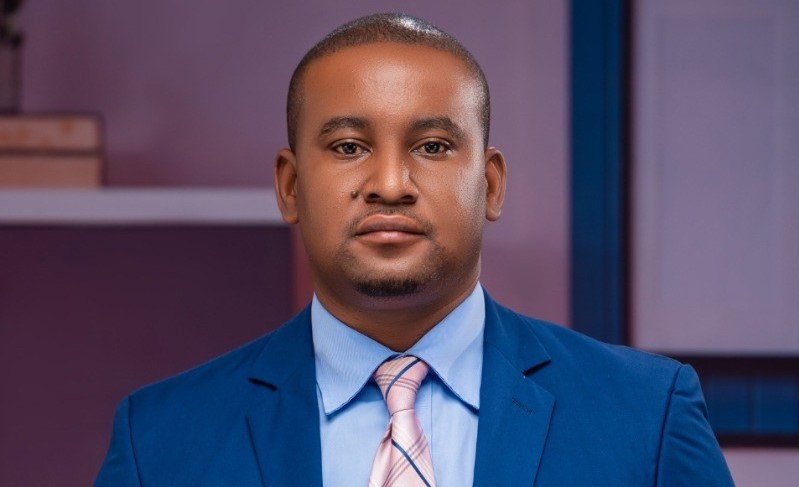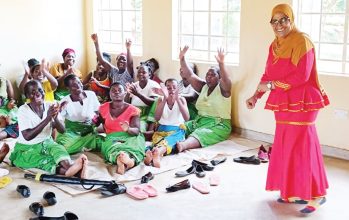Malawi gets IMF lifeline
The International Monetary Fund (IMF) has committed to provide short and long-term recovery support through a new economic programme aimed at boosting and stabilising Malawi’s economy to achieve growth.
The IMF commitment, made on Friday during a meeting between President Lazarus Chakwera and the Bretton Woods institution’s managing director Kristalina Georgieva in the United States of America where the Malawi leader attended the United Nations Conference on the Least Developed Countries, has been hailed by economists as ideal for the country currently facing economic challenges caused by effects of Covid-19 and natural disasters.

Writing on Twitter after the meeting, Georgieva said she had “an excellent and productive meeting” with Chakwera.
She said: “We pledged to continue working together closely.
Our teams will cooperate towards an IMF-supported programme Asap [as soon as possible] to help with Malawi’s short-term economic recovery and longerterm development goals.”
On his part, Chakwera said they highlighted the need to align the IMF programme in Malawi to the country’s short and long-term development efforts as guided by the Social Economic Recovery Plan, Malawi 2063 long-term development agenda and its first decade implementation strategy plan Malawi 2063 Implementation Plan.
“I met with director general of the International Monetary Fund, Kristalina Georgieva, to discuss the macroeconomic situation in Malawi, especially in the light of external shocks from natural disasters, Covid-19 pandemic and other geopolitical factors,” he said.
Reacting to the news in a written response, Mzuzu University economics lecturer Christopher Mbukwa said the commitment by IMF to help Malawi with short-term economic recovery and long-term development goals was welcome considering that the country’s economy is vulnerable to external shocks, making it impossible to sustain economic growth trajectory.
He observed that the IMF supports countries hit by crises by providing some financial support and other capacity building activities.
Mbukwa said: “Our economy has been tattered by the effects of Covid 19 and climatic weather shocks and this support can be helpful to stabilise the economy.
“The growth estimates for the 2022-23 are likely to be impacted negatively due to a new wave of external shocks such as the recent cyclones and global geopolitical conflicts that are likely to affect oil and fertiliser prices.”
He said the IMF support may just be what is needed to insulate the economy and avoid further deterioration.
But Mbukwa pointed out that what is more important is that the commitment to support should be channelled to building resilience to withstand various shocks the country is facing.
He said: “We are yet to get information on the whole package of the commitment by IMF, but it suffices to say that government will do the needful to ensure that the support is tailored to strengthen our springs for bouncing back whenever we face negative shocks.”
Mbukwa said doing the needful on the part of government includes provision of accurate data as opposed to previous reports of massaging and doctoring of information that was provided to the IMF.
Malawi University of Business and Applied Sciences (Mubas) associate professor of economics Betchani Tchereni said in
a separate interview that the IMF commitment has come at the right time when Malawi’s import cover is below the internationally recommended three-month threshhold.
He said the country needs every opportunity that provides an intervention and assures stabilization efforts for the currency and Balance of Payment (BoP).
Tchereni said: “As much as we don’t like the conditionalities which the IMF dangle to us as we beg for stabilization interventions from them, the truth is that our country is a predominantly importing one with balance of payments deficits that are huge.”
Malawi’s last economic programme with the IMF, the Extended Credit Facility (ECF), came to a sudden halt on September 24
2020 when Chakwera’s administration cancelled the arrangement brokered by his predecessor Peter Mutharika after purportedly spotting some problems.
Chakwera and his nine political-party Tonse Alliance, ushered into power through the court-sanctioned Fresh Presidential Election held on June 23 2020, requested a new four-year ECF programme that would be better aligned with Malawi’s long-term development strategy, Malawi 2063. Through the ECF, the IMF provides financial assistance to countries such as Malawi, which have protracted BoP problems.





